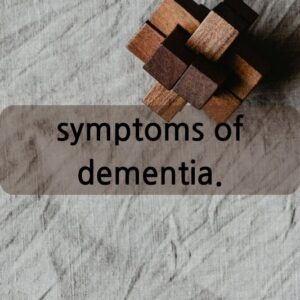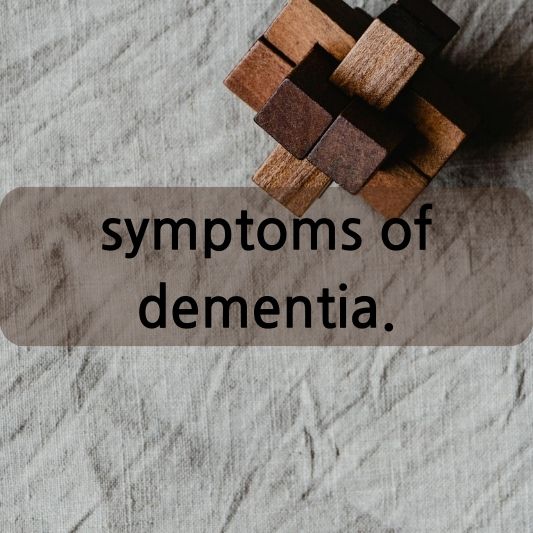Dementia, a progressive condition affecting cognitive function, can manifest in various ways. Recognizing the symptoms early is crucial for timely intervention and support. Let’s delve into the signs and progression of dementia symptoms.

Common Symptoms of Dementia
Dementia presents a range of symptoms, often affecting memory, thinking, and behavior. Common indicators include:
- Memory Loss: Forgetfulness and difficulty recalling recent events or information.
- Difficulty in Communicating: Struggling to find the right words or following conversations.
- Impaired Reasoning and Judgment: Making poor decisions or having trouble with problem-solving.
- Personality and Behavioral Changes: Alterations in mood, behavior, or personality traits.
Early Signs of Dementia
Identifying early signs can aid in seeking appropriate medical attention. These signs may include: Forgetfulness: Forgetting important dates or events, repeatedly asking the same questions.
- Confusion: Disorientation in familiar surroundings or situations.
- Difficulty Completing Familiar Tasks: Struggling with tasks that were once routine.
- Mood Swings: Uncharacteristic changes in mood or behavior.
Progression of Symptoms
Dementia symptoms can progress over time, categorized into stages such as mild cognitive impairment, moderate dementia, and severe dementia, each presenting distinct challenges and care needs.
Factors Contributing to Dementia Symptoms
Several factors influence the development and progression of dementia, including age, genetics, lifestyle choices, and underlying health conditions.
Importance of Early Detection and Diagnosis
Early detection facilitates access to appropriate treatment and support services, aids in future planning, and enhances the overall quality of life for both patients and caregivers.
Seeking Medical Help
Consulting a healthcare professional is crucial for accurate diagnosis and tailored care plans. Diagnostic tests and evaluations help determine the cause of symptoms and guide treatment options.
Coping Strategies for Dementia Symptoms
Creating a supportive environment, encouraging independence, employing effective communication techniques, and engaging in stimulating activities can alleviate some of the challenges associated with dementia.
Conclusion
Understanding the symptoms and progression of dementia is essential for early detection and intervention. By recognizing the signs and seeking timely medical assistance, individuals and their families can better cope with the challenges posed by this condition.
FAQs
What are the early signs of dementia?
Early signs of dementia may include forgetfulness, confusion, difficulty completing familiar tasks, and mood swings. If you or a loved one experience any of these symptoms, it’s important to consult a healthcare professional for proper evaluation and guidance.
Can dementia symptoms be reversed or cured?
Currently, there is no cure for dementia. However, certain medications and therapies may help manage symptoms and slow down the progression of the condition. Early detection and intervention can significantly improve the quality of life for individuals with dementia.
How can family members support a loved one with dementia?
Family members can provide emotional support, create a safe and supportive environment, encourage independence, and engage in activities that stimulate cognitive function. It’s also essential to educate oneself about dementia and seek support from healthcare professionals and support groups.
Are there any preventive measures against dementia?
While there is no guaranteed way to prevent dementia, adopting a healthy lifestyle can reduce the risk. This includes maintaining a balanced diet, staying physically and mentally active, managing chronic health conditions, and avoiding harmful habits like smoking and excessive alcohol consumption.
What resources are available for dementia patients and caregivers?
There are various resources available for dementia patients and caregivers, including support groups, counseling services, respite care programs, and educational materials. Healthcare professionals, community organizations, and online platforms can provide valuable support and information tailored to individual needs.
